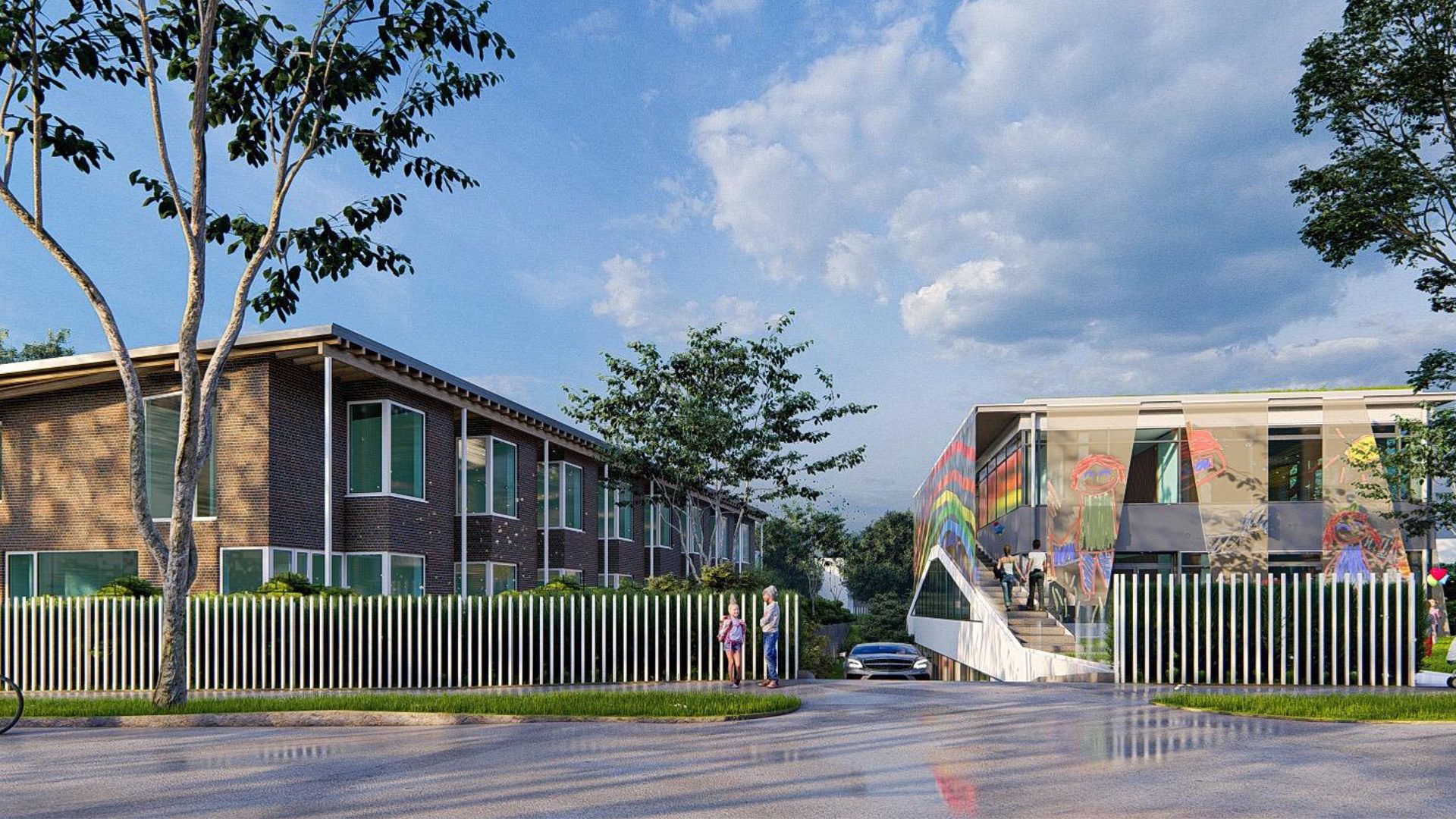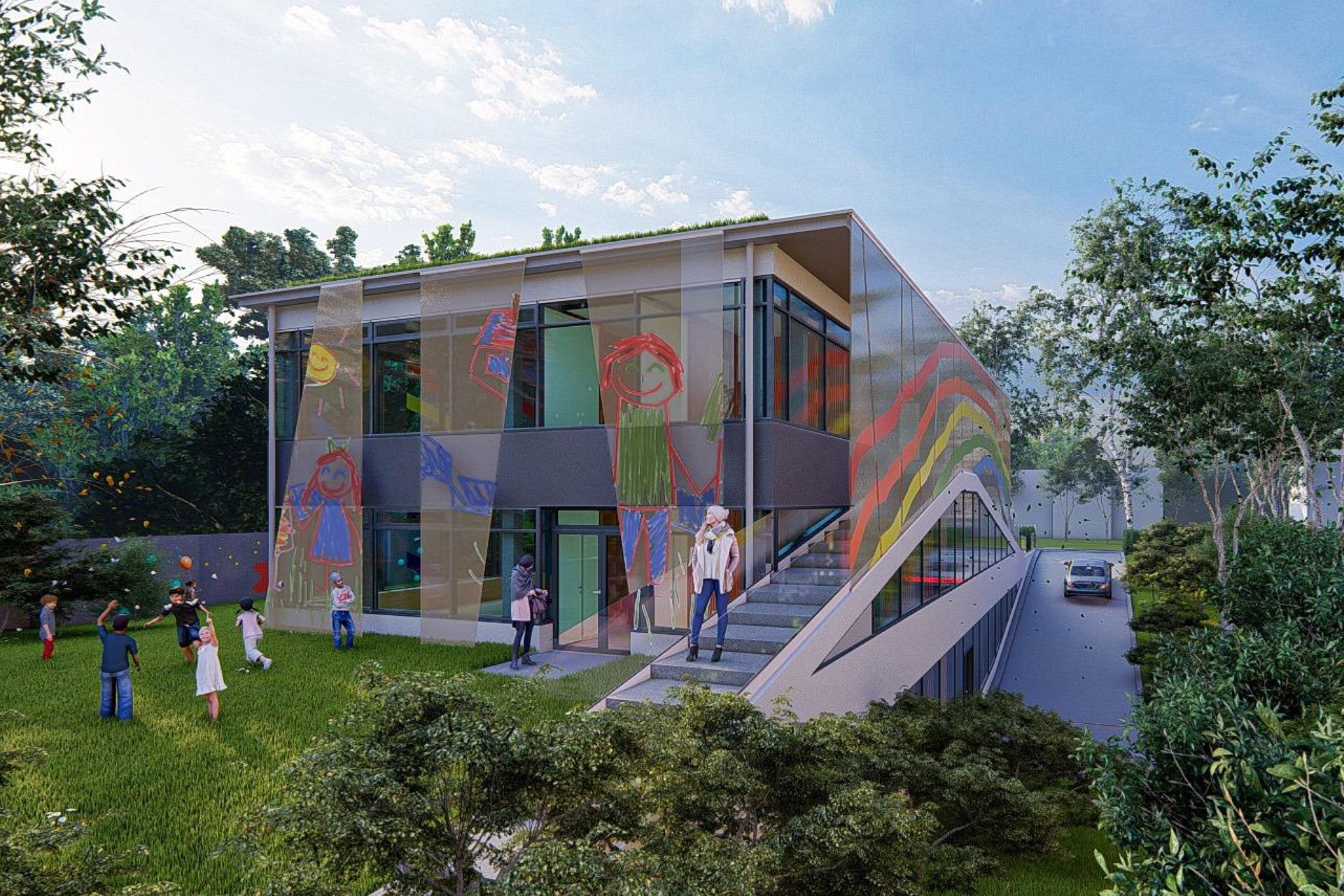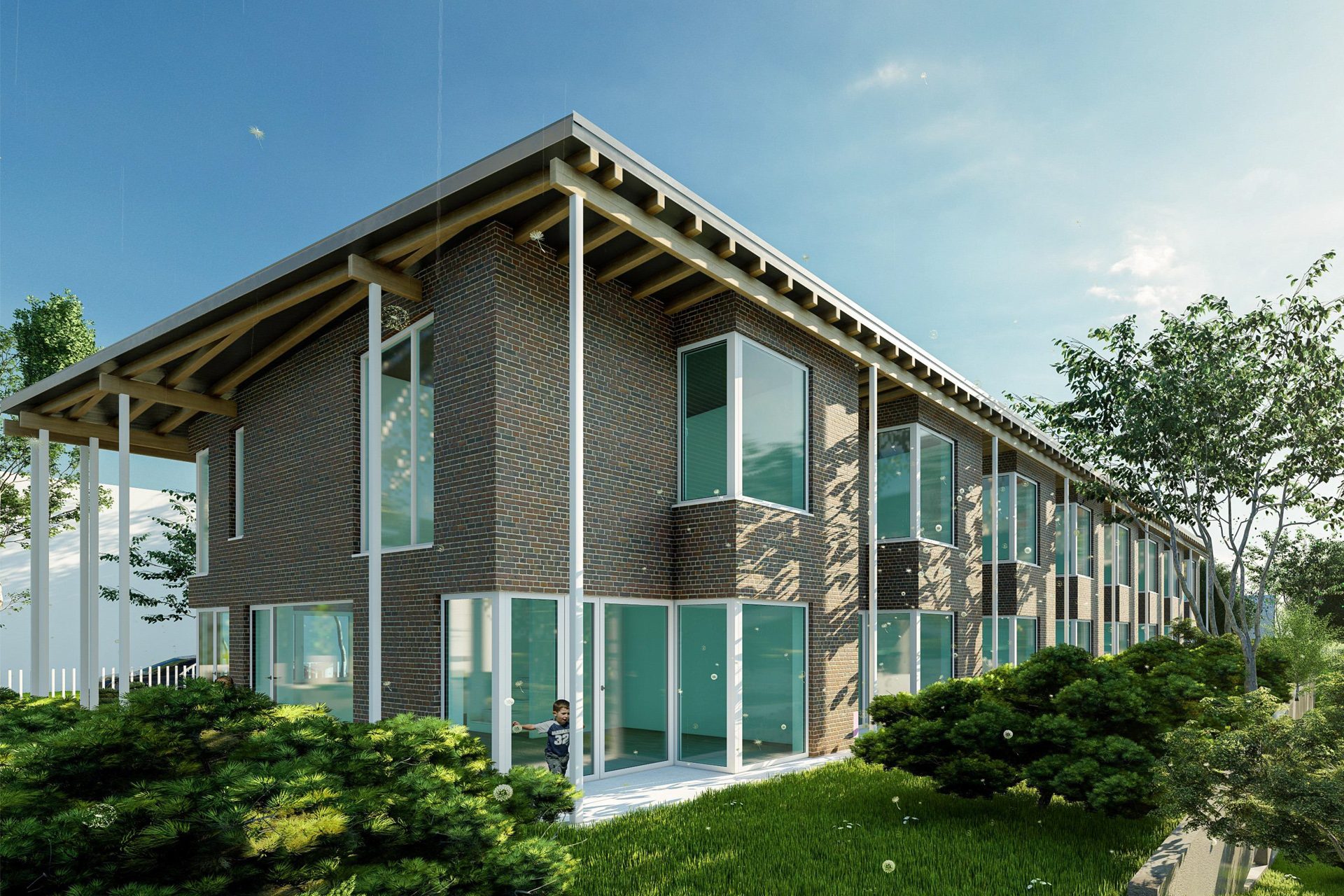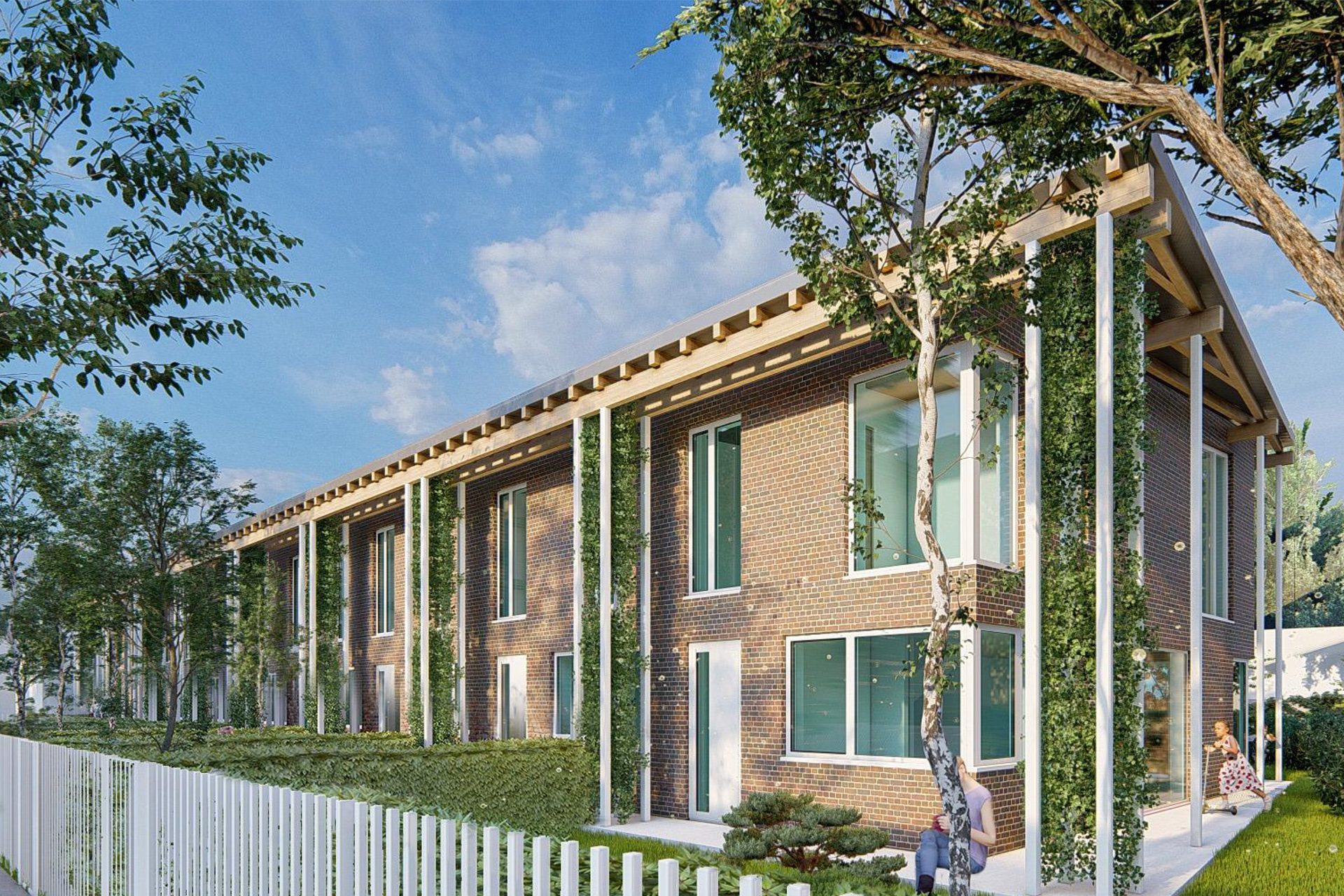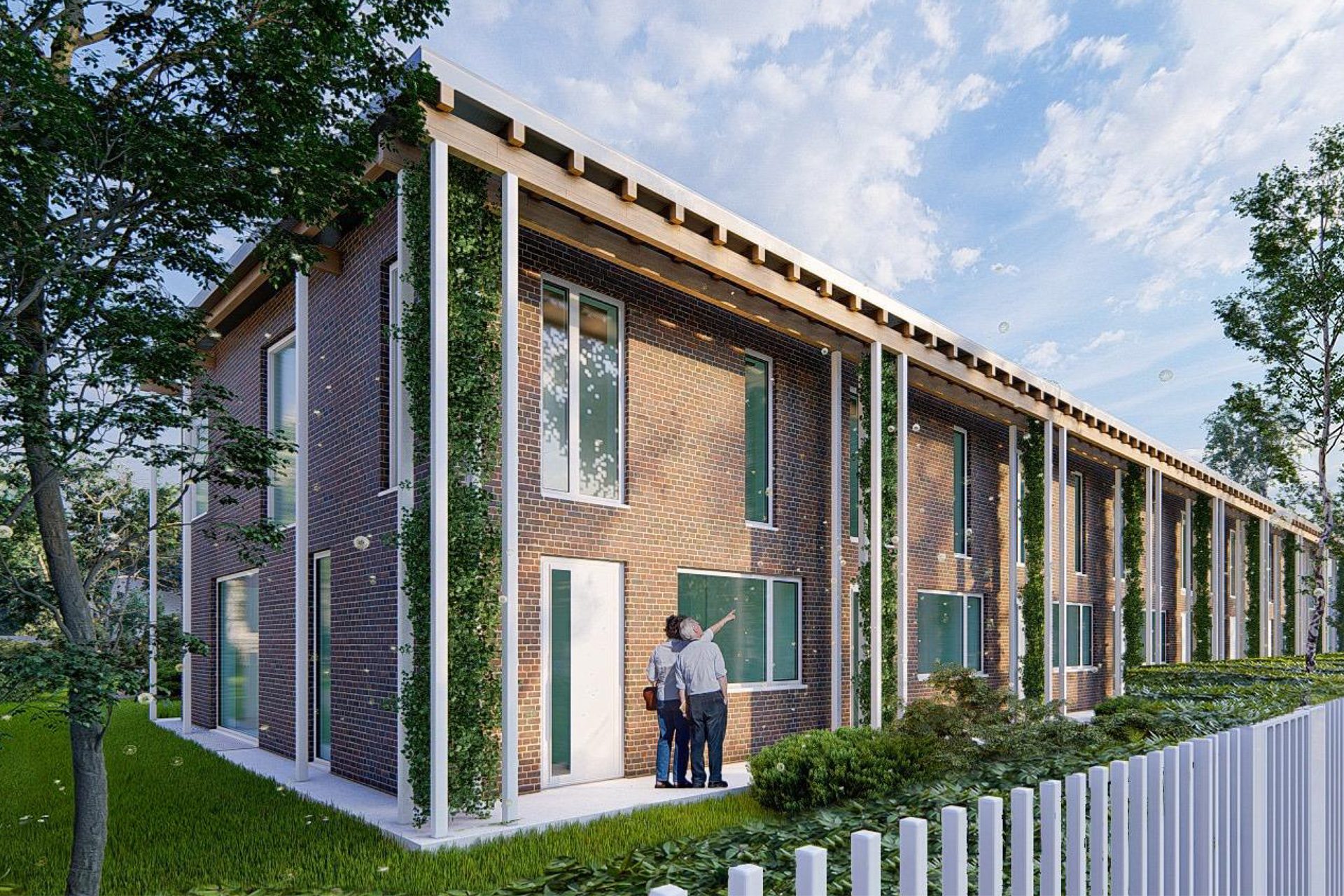Who’s moving next doors? What are they building on the neighbouring plot? - these are the all so important questions everyone asks as we’d all like to live in a neat and quiet environment. The architect of Fischer Garden project was in a fortunate situation of designing something next to his very own house. However, being personally involved did not by any means alter his usual planning routine.
Among the detached houses of Zugló we designed two buildings with two different functions: an eight flat terraced house and a four group room kindergarten for 80 children. We made plans for human-scale buildings on a 2500m2 corner plot that had a 30% site coverage. The 6,5 m building height allows a building mass of a ground floor plus first floor structure. When planning we had to consider creating a green buffer zone towards the neighbouring buildings and the ideal orientation of both the kindergarten and the residential building. The biggest challenge in this was figuring out how to arrange a community building and a residential one on the same plot. Finally, we tackled the problem with a shared access road leading to the basement floor below the buildings.
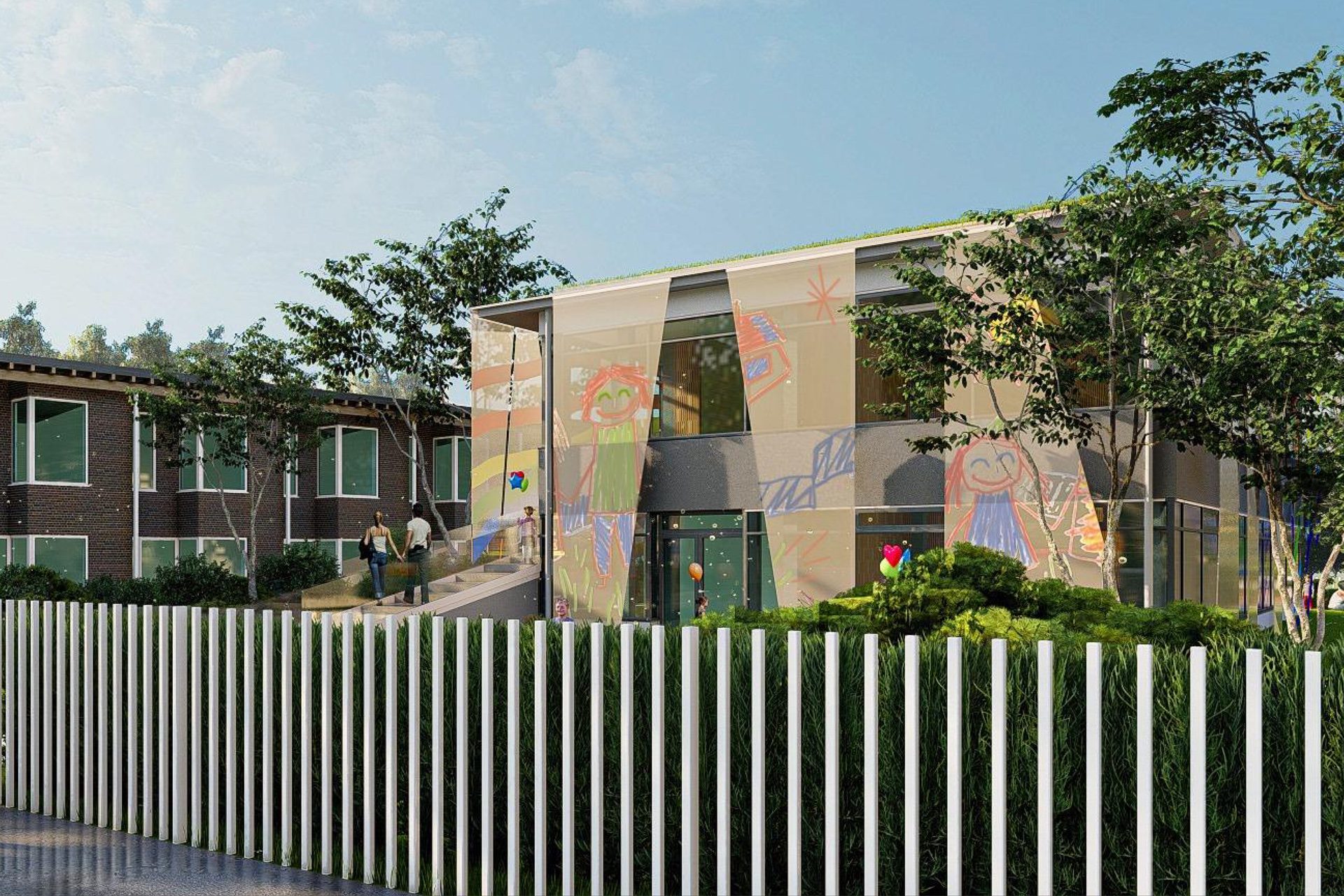
The valley-like green axis divides the plot into two parts, separating the kindergarten from the residential building.
When planning the kindergarten, we concentrated on creating a child centred environment, leaving the clichés of typical institutional design behind so as to provide a home-like cosiness which is more suitable for the kids. Of course, the general layout must meet the demands of the teachers, administrators and the parents too. Therefore, the building must be functional while it should also enhance the mutual connection between teachers and children. Thus, our basic architectural concept was to come up with a spacious, child-centred kindergarten that has functional yet economical spaces.
The entrance of the kindergarten is from Fischer István street. The age 4 to 5 groups are placed on the top floor of the rectangular, two-floor building, while the smaller kids’ activity rooms and the family nursery group rooms are downstairs. The playground has access from both floors through a spacious activity hall and changing room. Servicing functions like a heating kitchen, maintenance room and storage room are also downstairs, just like a multifunctional room and an individual activity room. The windows of these face the green axis-valley dividing the garden. We did our best in designing a children-scale environment so we had to imagine how they would use the spaces, what they would see and what experiences they could have. We aimed to come up with an exciting environment that lacks too bright and vivid colours and shapes and provides a calm and peaceful surrounding for the children. The kindergarten’s image is defined by the graphically treated glass blades placed in front of the facade of the building – their playfulness perfectly matches the child-centred approach of the institution while giving it a public building identity as well.

The pedestrian entrance of the eight unit terraced house is from the direction of Bonyhádi street. The circa 125m2 houses have four rooms each. On the ground floor there is a light living room facing south-east, a garden and a terrace. Uptsairs there are three bigger rooms, a bathroom and a wardrobe. Parking is in the common parking area underneath the building from where there are individual entrances to each residential units. Next to the kindergarten the residential building gives the impression of a simple, minimalist building. Its brick facade and the green front yard radiates a friendly atmosphere that blends in perfectly with the suburban street view.
Project Details
- Project Name Fischer Garden
- Location Budapest, Hungary
- Years of Design 2021-
- Client Aranyalma Családi Napközi Llc.
- General Design BORD Architectural Studio
- Head Architect Peter Bordas
- Architect Team Róbert Benke, Emese Kulcsár
- Mechanical Design BORD HVAC Engineering Llc. - Zoltán Hollókövi
